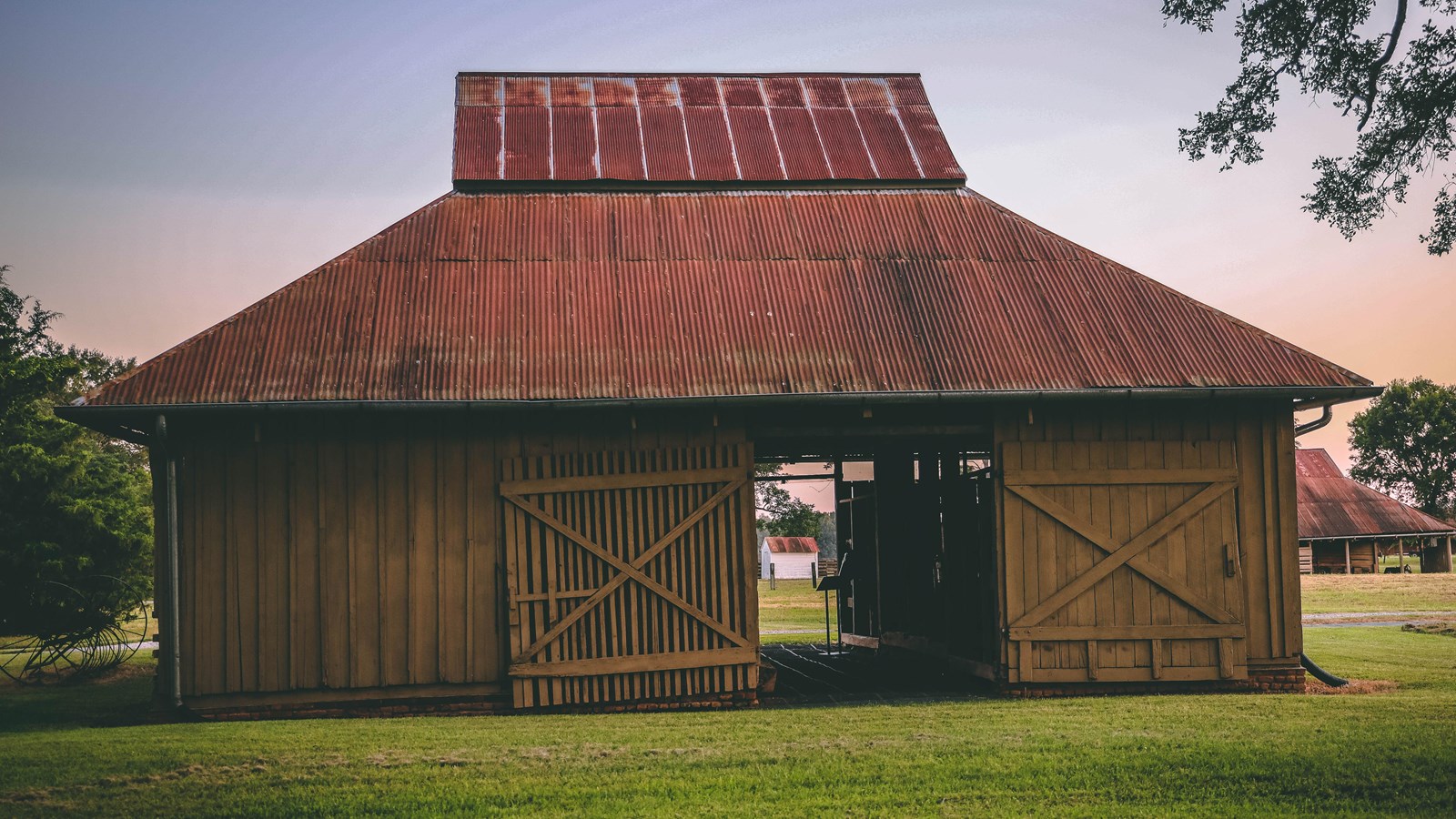Last updated: July 29, 2022
Place
Oakland Mule Barn, Carpenter Shop and Pigeonnier

NPS Photo/Corey Poole
Quick Facts
Location:
Natchez, LA
Amenities
2 listed
Accessible Rooms, Historical/Interpretive Information/Exhibits
The Mule Barn started out as a smokehouse. When the original mule barn was destroyed by a lightning storm, this building was converted to be the new mule barn. This building is a great example of the resourcefulness and ability to adapt, exhibited by the Prud’homme family.
The Carpenter’s Shop is constructed of hand-hewn cypress logs. At the corners of this structure, you can see the notching that held the logs in place. The building is covered with a coat of lime wash. Lime was the main ingredient in any recipe for lime wash, but recipes could vary from region to region. Lime wash is another example of the Creole ability to make practical use of readily available materials.
Pigeonniers or dovecotes were common on French Creole plantations. The Prud’homme family housed pigeons in these buildings, which they would harvest for pigeon pie or squab on toast. They would also eat the eggs and use the pigeon waste as fertilizer.
The Carpenter’s Shop is constructed of hand-hewn cypress logs. At the corners of this structure, you can see the notching that held the logs in place. The building is covered with a coat of lime wash. Lime was the main ingredient in any recipe for lime wash, but recipes could vary from region to region. Lime wash is another example of the Creole ability to make practical use of readily available materials.
Pigeonniers or dovecotes were common on French Creole plantations. The Prud’homme family housed pigeons in these buildings, which they would harvest for pigeon pie or squab on toast. They would also eat the eggs and use the pigeon waste as fertilizer.
